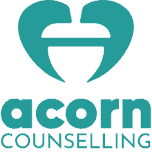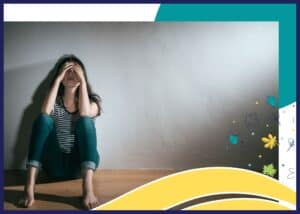Helping Your Teen Maintain Progress After OCD Treatment: A Supportive Community for Ongoing Growth
Your teen has worked hard in therapy, facing fears and resisting compulsions through Exposure and Response Prevention (ERP). That’s a huge achievement. But now that treatment is over, you may be wondering, what’s next? How can they keep using these skills, stay confident in their progress, and continue building resilience?
Recovery from OCD doesn’t end when therapy does. It’s an ongoing process, and maintaining progress takes practice, encouragement, and the right support system. That’s why we’re offering a therapeutic peer support group for youth (ages 12-17) who have completed ERP treatment. ERP treatment is one of the ways to help teens with OCD. This group is a place where teens can connect, reinforce their skills, and feel supported as they navigate post-treatment life.
Why Ongoing Support Matters
Finishing ERP therapy is a big milestone, but it’s normal for teens to experience ups and downs afterward. Without regular practice and reinforcement, it can be easy to fall back into old patterns or feel uncertain about how to handle challenges as they come up, or if OCD gets loud. OCD has a tendency to pop up again over time with a new worry or focus, so monitoring and practicing skills is important. This group helps bridge that gap, giving teens a space to check in, set goals, and keep their progress on track.
A Safe, Supportive Environment
Teens with OCD often feel alone in their experiences, especially if their friends don’t fully understand what it’s like to live with intrusive thoughts and compulsions. Teen OCD treatment can be intense and short term, but maintaining progress is important too. This group is designed to change that.
Here, they will:
- Meet others who understand OCD from the inside out
- Share successes and struggles in a non-judgmental space
- Feel heard and validated without having to explain every detail
- Reduce feelings of isolation and stigma by connecting with peers
Having a community makes a difference. Knowing they’re not alone can help teens feel more confident, hopeful, and empowered in their recovery.
Keeping ERP Skills Strong
Exposure and Response Prevention works best when it becomes part of daily life. But without the structure of therapy sessions, it’s easy for teens to avoid exposures or start engaging in compulsions again.
This group helps keep ERP skills active by:
- Encouraging small, realistic goals each month
- Providing accountability and support to keep progress moving forward
- Giving space to problem-solve challenges with peers who get it
- Helping teens stay motivated and confident in their ability to resist OCD
Each session includes practical exercises, discussion topics, and mini ERP challenges tailored to what members need support with. Whether it’s working through a new trigger, practicing uncertainty, or resisting compulsions in tough moments, this group provides the structure and encouragement to keep going.
Building Social Confidence
OCD can make social situations more stressful. Whether it’s explaining their experiences, advocating for themselves, or handling social anxiety, many teens struggle with confidence in friendships, school, and family life.
This group helps teens practice:
- Speaking up about their needs in a supportive setting
- Handling intrusive thoughts in social situations
- Navigating friendships with more confidence
- Learning to self-advocate at school and home
By engaging in structured discussions and activities, teens will develop stronger communication skills, a sense of self-assurance, and the ability to handle social challenges without OCD taking over.
Handling Setbacks Without Fear
Relapse is a common concern for both teens and parents. OCD symptoms might flare up at times, especially during stressful periods. That doesn’t mean progress is lost—it just means extra support is needed.
This group helps teens:
- Normalize setbacks as part of the recovery process
- Learn how to respond when compulsions return
- Practice self-compassion instead of self-criticism
- Create action plans for getting back on track
By preparing for challenges ahead of time, teens can handle setbacks with confidence and stay in control of their recovery.
What to Expect in the Group
Who Can Join:
- Youth (ages 12-17) who have completed ERP treatment or are nearing completion
- Teens who want to stay engaged in their progress and strengthen their skills
- Those who are ready to connect with a peer community for support
Group Details:
- Meets once per month (90-minute sessions)
- Small group setting (maximum of 6 participants)
- Led by an experienced therapist trained in ERP
- Open group format (new members considered based on group fit)
How to Get Started
If your teen is ready to keep growing in their recovery, this group can provide the support they need. We’re accepting referrals now, and our facilitators will personally connect with interested families to ensure the group is a good fit. If your youth has already completed teen OCD treatment and wants support and skills maintenance, please reach out!
To learn more or sign up, please visit the page Helping Youth Maintain Progress after ERP at https://www.acorncounselling.org/teen-ocd-support/
Let’s keep the momentum going—because your teen’s progress deserves to last.





